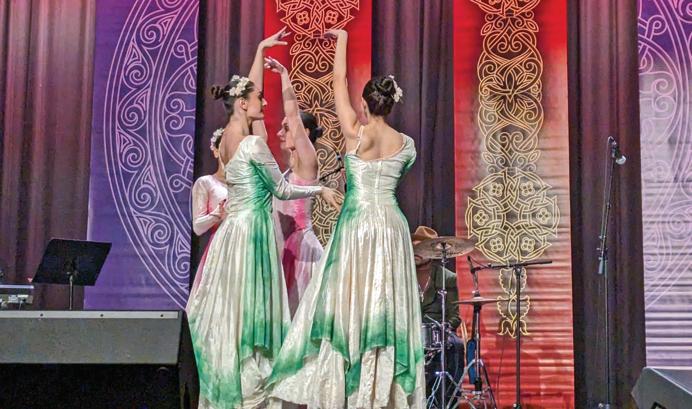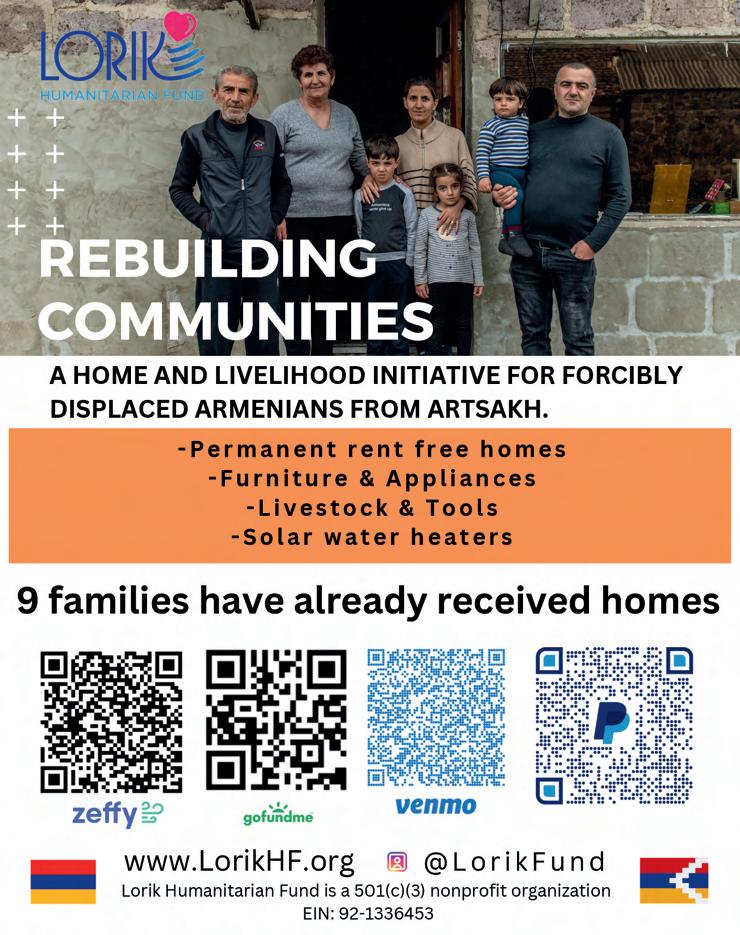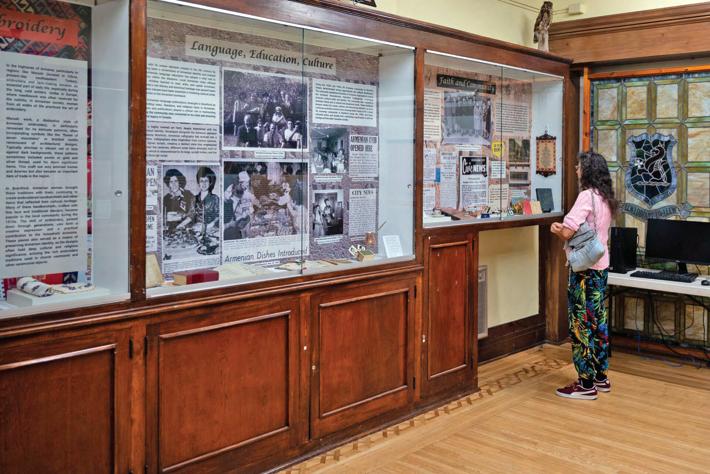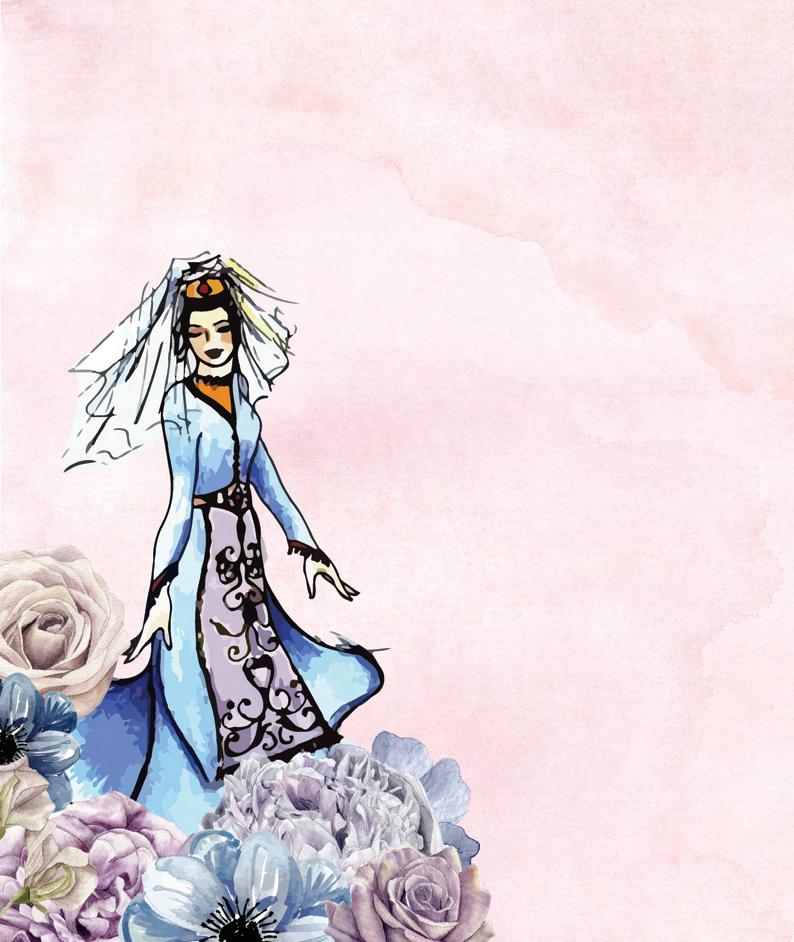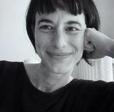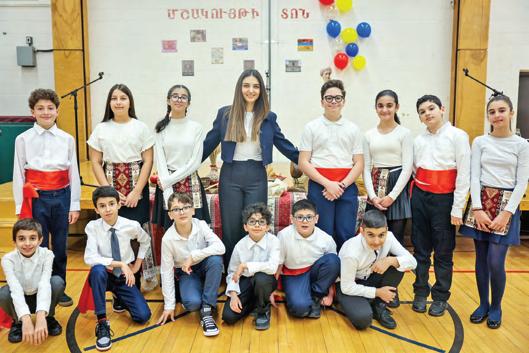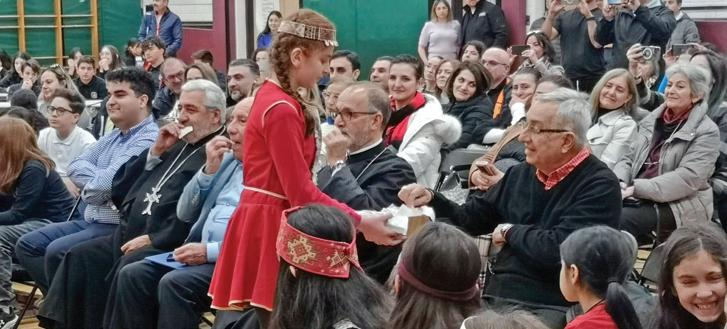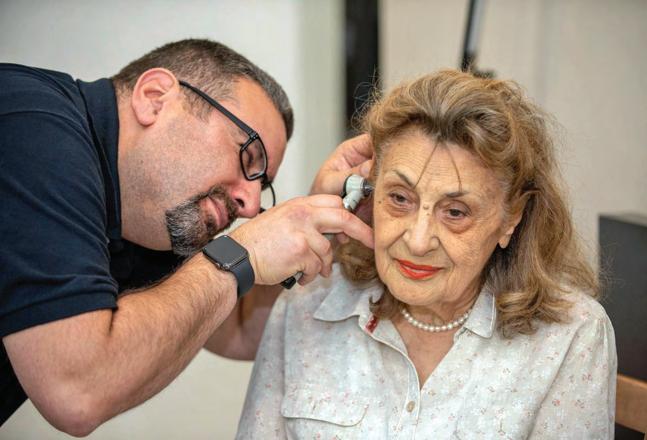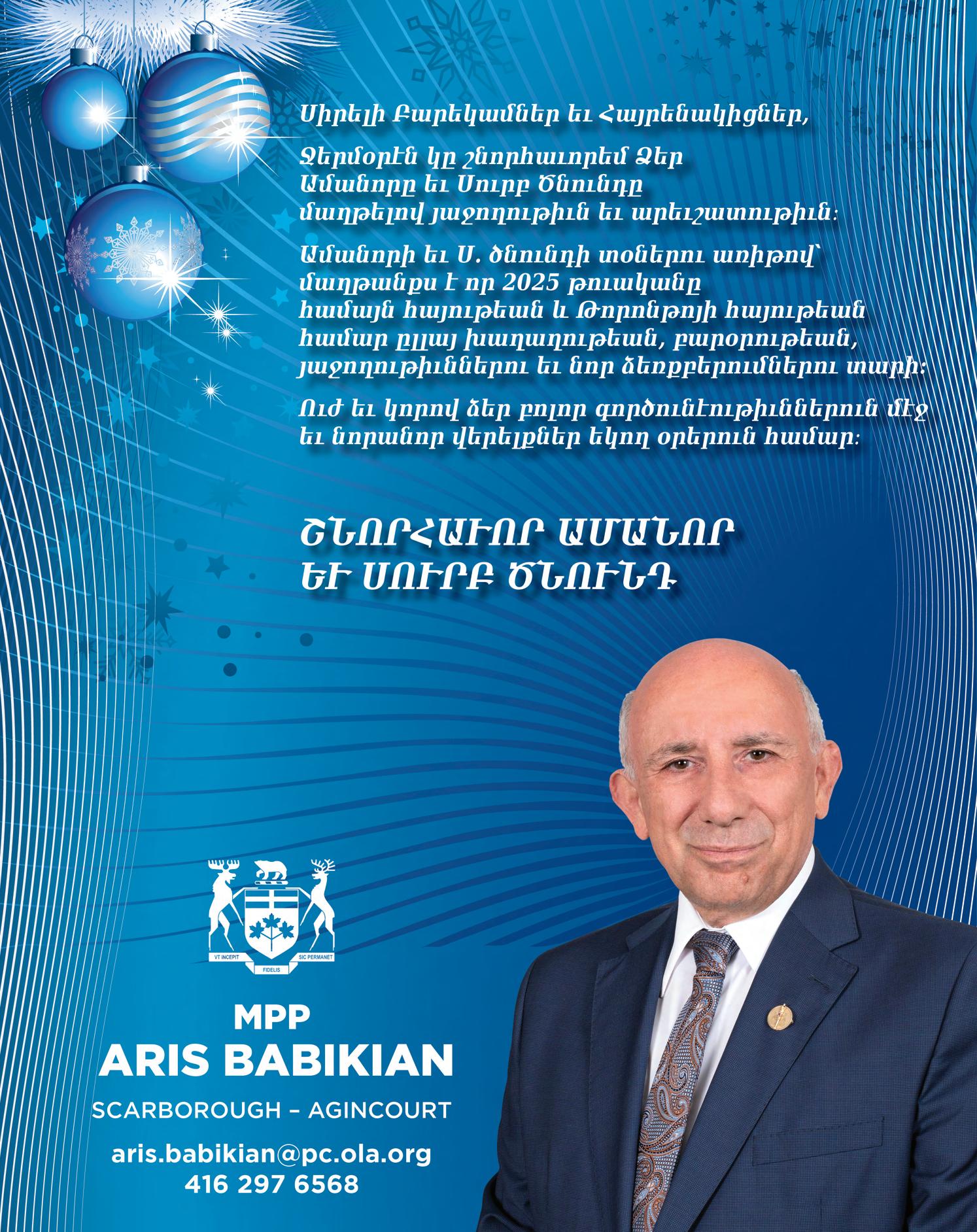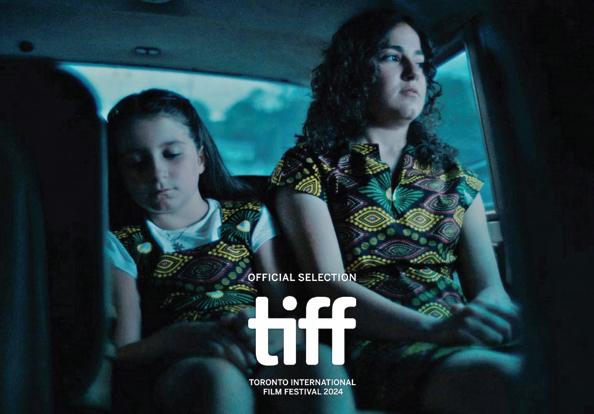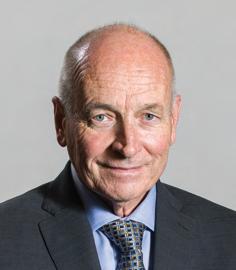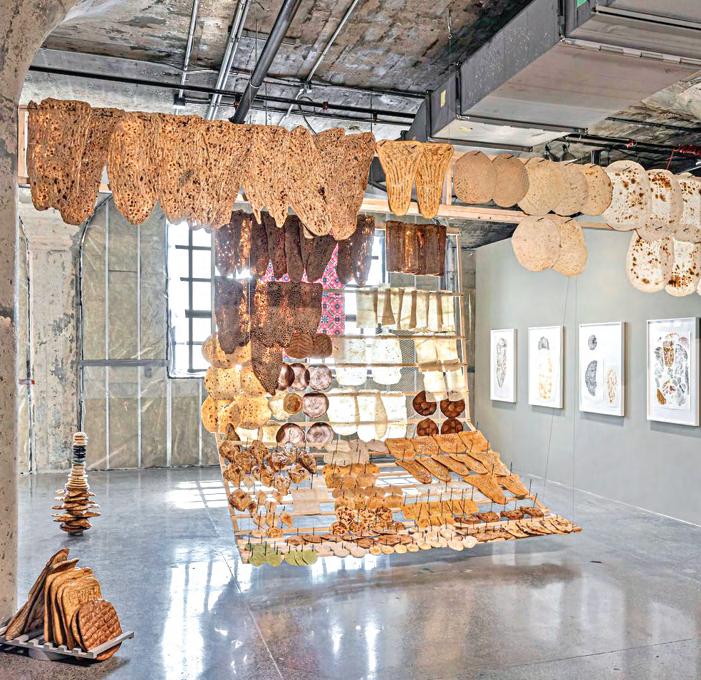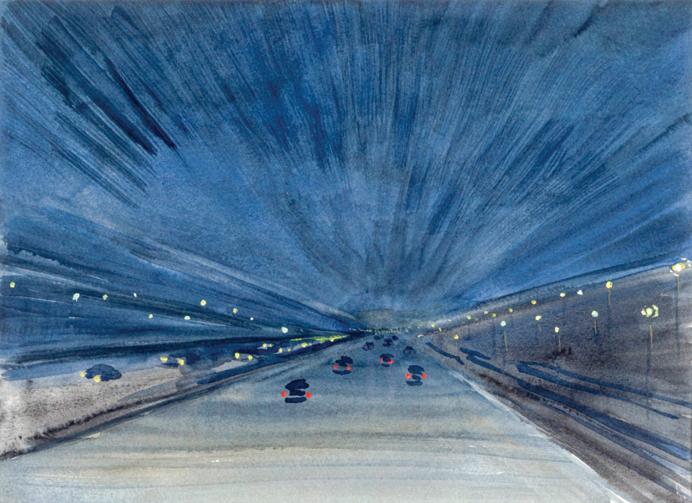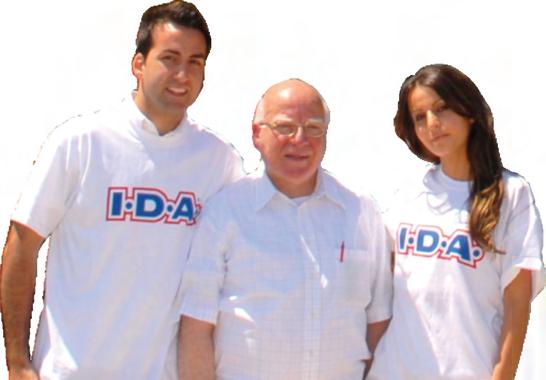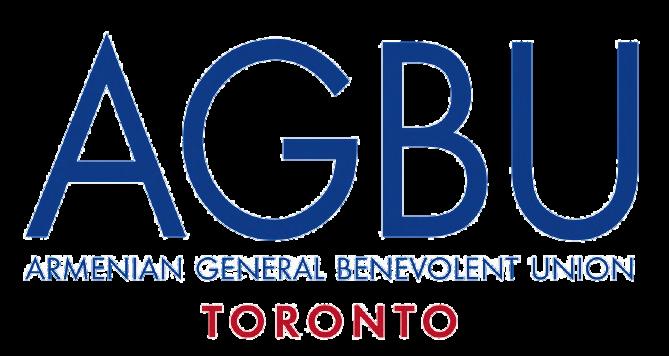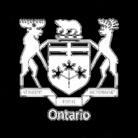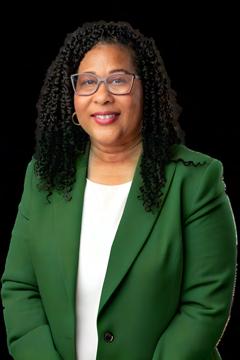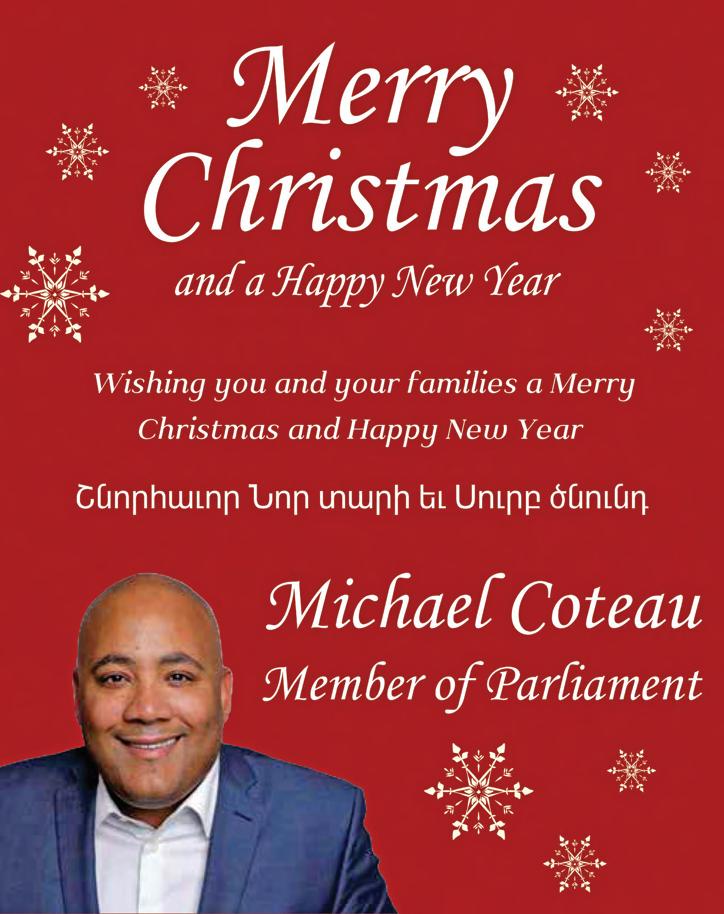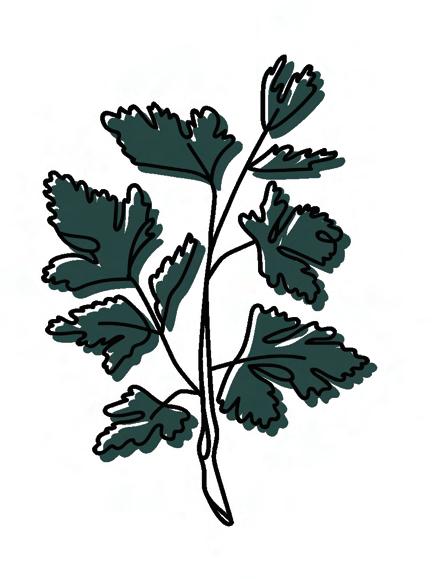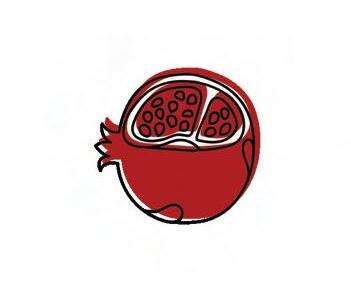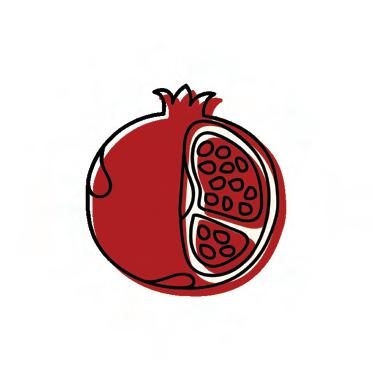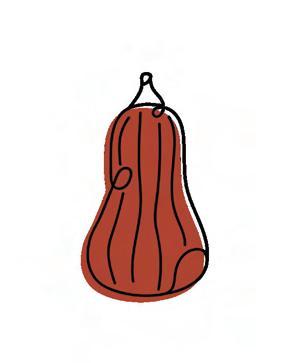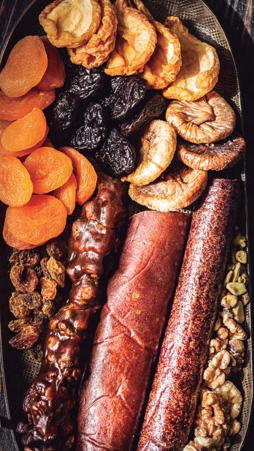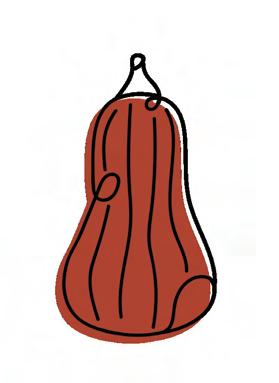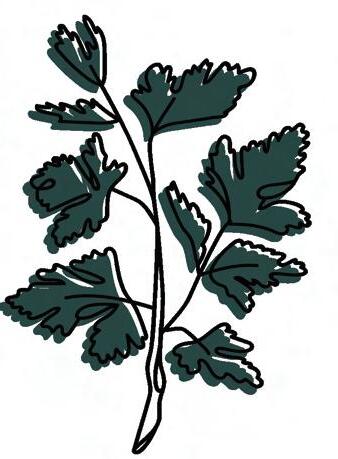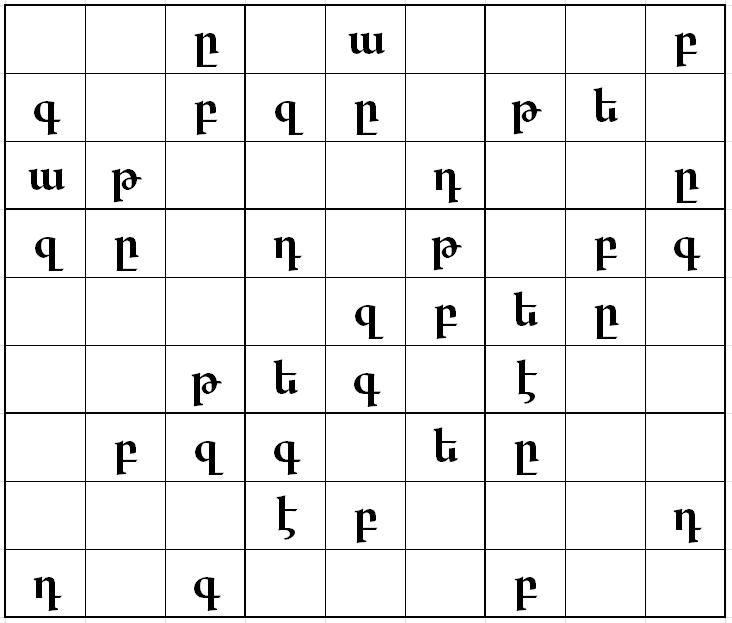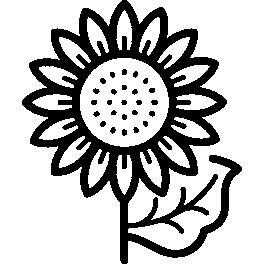Ontario Legislature declares Orthodox Christian Week with unanimous support
TORONTO—On Wednesday, Dec. 11, 2024, the Ontario Legislature passed Bill 167, officially declaring Orthodox Christian Week. The seven-day observance, beginning on Orthodox Easter Sunday each year, honours the traditions and religious practices of Orthodox Christians in Ontario and around the world.
Tom Rakocevic, Member of Provincial Parliament (MPP) for Humber River–Black Creek, proudly shared the significance of the Bill, which recognizes the contributions and faith of Orthodox Christians in Ontario, celebrates their cultural and religious heritage, and fosters collective unity. He offered his heartfelt gratitude to everyone who helped bring this recognition to fruition.
“I want to thank everyone who has had a hand in bringing this important recognition of Orthodox Christianity in Ontario this far. If you have reached out to decision-makers to tell them why this is so important, thank you. If you have signed petitions in support or spread a good word, thank you. If you have helped in any way, thank you. To all my colleagues, all of them, from across this House on all sides, who have come together to make this a reality, thank you.”
The reading of the Bill was attended by clergy and faithful from various Orthodox traditions across Ontario, including representatives from the Armenian Apostolic churches in Toronto: Fathers Zareh Zargarian and Karekin Shekherdemian, and former Armenian National Committee of Toronto (ANCT) chair Hratch Aynedjian.
Bill 167, introduced by MPP Rakocevic,
was first presented on Feb. 26, 2024. It passed its first reading, followed by the second reading on March 19, and its third reading on Dec. 11. The Act will come into force on the day it receives Royal Assent. The first Orthodox Christian Week will be celebrated starting April 20, 2025.
Aris Babikian, MPP for Scarborough-Agincourt, spoke in support of the Bill on behalf of the Progressive Conservatives. He expressed his pride in the passage of the Bill that occurred the day before, emphasizing the importance of recognizing Orthodox communities in Ontario:

“On behalf of my colleague from Oakville North–Burlington [MPP Effie J. Triantafilopoulos] and myself, and as two members of this House from Greek and Armenian Orthodox roots, we would like to extend our heartfelt gratitude to all our colleagues on both sides of the aisle for passing this important bill: Bill 167, Orthodox Christian Week Act. Also, I would like to acknowledge that yesterday two representatives from the Armenian Orthodox Church were here, and I would like to acknowledge their presence and their contribution to this Bill: the Very Reverend Archpriest Father Zareh Zargarian, Vicar of the Armenian Church Diocese of Canada, and the Reverend Father Karekin Shekherdemian from St. Mary Armenian Apostolic Church."
The ANCT extended its heartfelt gratitude to the Ontario Legislature for unanimously supporting the Bill. "This decision reflects a deep commitment to recognizing faith as an integral part of Ontario’s multicultural fabric, fostering meaningful dialogue and education about the important role of the Armenian Apostolic Church and the enduring strength of the Armenian church and faith throughout history. We look forward to valuable interdenominational dialogue, further promoting a sense of unity and solidarity with Orthodox Christian communities and opportunities to honour the memory of our churches that have been destroyed as a result of Azerbaijani aggression," read a part of a statement released by the grassroots organization.
The ANCT also acknowledged the efforts of MPP Tom Rakocevic, as well as MPPs Aris Babikian, Effie J. Triantafilopoulos, Sheref Sabawy, and Minister Natalia KusendovaBashta, whose collaboration was pivotal in ensuring the Bill’s passage. ֎
Torontohye Communications Inc. info@torontohye.ca
editor@torontohye.ca
Publisher Torontohye Communications Inc. info@torontohye.ca
Editor Rupen Janbazian editor@torontohye.ca
Graphic designer/Layout editor Ara Ter Haroutunian ara@torontohye.ca
Associate editor/Staff writer Diroug Markarian Garabedian diroug@torontohye.ca
Associate editor/Armenia correspondent Salpy Saghdejian salpy@torontohye.ca
Administrator Missak Kawlakian missak@torontohye.ca
Advisor Harout Manougian harout@torontohye.ca
Advertisements ads@torontohye.ca
Branding Proper Company proper.am
The Ontario Legislature passed Bill 167, officially declaring Orthodox Christian Week (photo courtesy of the ANCT)
յանձնախումբի
պատմական ընկերակցութեան (ՊՊԸ),
համալսարանի
The 15th of every month is the deadline for submitting your newspaper articles, advertisements, classified ads, announcements, or obituaries. Make sure to send in your submissions to info@torontohye.ca before the deadline to ensure they are included in the upcoming edition. Don’t miss out on the opportunity to share your message with the community!
A Toronto specialist’s mission to bring hearing to Armenia
By Edmond Ayvazyan
As a hearing care professional in Toronto, I’ve always taken pride in being the first Armenian in our city to serve the Armenian community’s hearing care needs. It’s been incredibly rewarding to help our elders hear better, but I’ve often wondered how our people in Armenia were managing hearing loss. Over the years, my interest in serving those further afield grew. I became curious about participating in a hearing aid mission—where volunteers travel to underserved areas, donate their time and resources, and help fit hearing aids for those in need. I promised myself that if I ever had the opportunity to volunteer in Armenia, I would make it happen.
That opportunity finally came this year.
In late August, I received word from the Armenia Hearing Aid Project, led by Heidi and Armen Kavoukjian and their family in Los Angeles, that they would be hosting another mission in Armenia at the end of September. I immediately reached out to express my interest in participating, and to my delight, they welcomed me on board. The next day, I booked my flights.
Day 1
After a long day of travel, I arrived in Yerevan and settled in for a few days before the mission began. On the morning of the 24th, I arrived at Arabkir Hospital at 8 a.m., where I was warmly greeted by the Audiology and Otolaryngology team. What a fantastic group of professionals! Alongside them were volunteers from the local medical school, and together they’ve been serving the people of Armenia since 2017.
Soon after, I met Heidi and her family. They were incredibly kind and welcoming, and Heidi expressed her gratitude for my help. She even told me I was now part of her extended family, which truly captured the spirit of Armenian hospitality. The day was dedicated to setup: Laptops were reconfigured, networks were established, hearing aids were tested and charged, and we met the volunteers and staff who would work with us. Several stations were set up where patients would move through different stages of the process—intake forms, consultations with ear, nose, and throat specialists, ear fittings, and finally receiving their hearing aids.
The day ended with a training session led by a Starkey representative, which prepared us for the upcoming days.
Day 2
The day began at 8 a.m., though we didn’t officially start until 10 a.m., which seemed part of the Armenian rhythm. Setting up all the stations took longer than expected, but I quickly learned to go with the flow.
After some technical issues with my computer—of all things—I finally began fitting hearing aids. The day was emotionally charged, with many patients who had been affected by the recent war, some of whom had suffered injuries from explosions. It was a sobering experience but incredibly rewarding to see how much they appreciated the chance to hear better.
Despite a two-hour delay, I managed to fit hearing aids for 11 people. Like I usually do, I ate lunch standing up in just a few minutes and went right back to work. This might have seemed unusual to the Armenians
around me, but I’m used to working through the day with minimal breaks.
to share my knowledge with those who had limited or no experience with this technology. I taught them everything from using directional microphones to ensuring the proper fit for each patient. The learning curve was steep, but the clinicians were eager to absorb new information.
The highlight of my day was fitting a well-known woman who had been wearing underperforming hearing aids for years. When I first fitted her with new hearing aids, she was shocked by the clarity of her own voice and initially didn’t like it. But after some adjustments, we found a setting that worked, and she was able to hear others much more clearly as well. It was a reminder that hearing aids aren’t just about amplifying sound but about finding a comfortable balance for each individual.
Another great day of learning and helping people hear their best!
Day 4
Today was like nothing I had ever experienced before. We were seeing nearly 300 patients in one day, and the process felt more like an assembly line than a typical clinic visit. We fit patients with hearing aids based on quick auditory assessments through hearing tests or by determining their needs on the spot. Some of the devices we used were older models, but the process was still effective. Seeing how many people we could help in such a short period was incredible.
It became clear that the project is well-supported by the Arabkir Hospital, and after the five-day mission, the hospital continues to provide care. The hearing aids are donated by Starkey, and the funds for them are raised through various fundraisers that Heidi and her team organize throughout the year. Truly, they are remarkable people.
The day’s fittings focused on younger patients who could manage more advanced digital hearing aids. By the end of the day, team had fitted 39 pairs of hearing aids. Tomorrow should be smoother now that we’ve worked out the kinks.
Day 3
This day was a blend of training and fittings. I spent most of the morning teaching local clinicians how to fit digital hearing aids. It was a great experience
My body was sore from standing on the pavement and bending to fit earmolds, but my heart was full. One of the women I had fit oa day earlier, a 93-year-old war veteran, came back to thank me personally. She told me she could finally understand the radio for the first time in years, a gift she’d never experienced with her old hearing aids. Her gratitude was overwhelming, and she even gifted me a beautiful piece of art as a token of her appreciation. It was a humbling moment, and it made me promise to return next year.
Day 5
By the final day, we had helped just under 700 people receive hearing aids. It was a monumental
A conversation with Arshile Egoyan: Exploring identity and legacy in ‘Before They Joined Us’
By Rupen Janbazian
Arshile Egoyan may carry a last name synonymous with cinematic artistry, but his work, ‘Before They Joined Us,’ marks a powerful, singular voice in the Armenian and Canadian film communities.
Rooted in deeply personal narratives, his latest short film pulls from his mother’s own childhood experience, weaving a poignant story of displacement, cultural dissonance, and the search for identity. This theme resonates widely, particularly among Armenian diaspora communities like Toronto’s.
Egoyan, now based in Los Angeles as he completes his MFA in screenwriting, speaks candidly about drawing from family history, navigating complex identities, and the emotional weight behind storytelling in his unique directorial approach.
In this conversation, he shares the journey of bringing such intimate material to life, his close collaboration with Toronto’s Armenian community, and the enduring influence of his legendary parents, Atom Egoyan and Arsinée Khanjian, on his evolving craft.
Rupen Janbazian: ‘Before They Joined Us’ is deeply personal, drawing on your mother’s childhood experience. How did your family, especially your mother, react when you decided to adapt such an intimate part of their history into a short film?
Arshile Egoyan: My mother holds strong opinions on many things and has never been one to shy away from sharing them. And yet, when it comes to recounting personal anecdotes from her past, I’ve never known her to be someone who relishes divulging. I arrived at the material in ‘Before They Joined Us’ via family friends who were surprised that I wasn’t familiar with this particular chapter of my family’s history. They instructed me to excavate. When I asked my mother to fill in the blanks, she told me this almost unbelievable story as though it were just a given collection of facts. It had to be a film. Being a storyteller herself, she understood my creative draw to it. She was happy to spend the time and energy necessary to give me what I needed to distill it into something an audience could interact with.
Janbazian: Your film addresses themes of exile and identity, primarily through the dissonance between safety and belief systems. How did you approach portraying this tension, particularly through the lens of the two young girls?
Egoyan: Upon leaving Lebanon, Taline and Garine leave behind a cultural landscape and familial structure that has nurtured them up to that point. The emotional and psychological safety contained within that structure is deprioritized by parents who understand

that the girls’ physical wellbeing is under threat. The cost of escaping one type of violence, however, is to accept the violence inherent in tearing children away from all that is familiar to them. Ironically, the existential terror they face in Montreal— having to reckon with Armageddon, a supposedly impending event according to the aunts who receive them—stems from a belief system designed to offer direction and purpose to its adherents. All stories are fundamentally about change; in this one, the emphasis is on exchange. The girls exchange one cultural context for another, one family experience for another, and one belief system for another. There are always associated costs and benefits to exchanges. To be safe physically and emotionally, the girls are forced to reimagine their realities.
Janbazian: You’ve cast some Armenians from Toronto, including Lorie Berberian, a Torontohye contributor. How did the casting process unfold within the Armenian community here in Toronto, and how important was it for you to involve local talent in the film?
Egoyan: Being an almost entirely Armenian-language film, we knew from the script stage that the project was dependent on investment from the Toronto Armenian community. Even so, I was deeply moved to feel how motivated the community was to help make the film a reality. I’m grateful to you for coordinating efforts to disseminate the casting call for the film and broadcast it via Torontohye. The Armenian Community Centre agreed to let us host auditions on their premises, and the Keshishian family—an important local family of artists and creatives—was instrumental in running the casting sessions. Not only did Setta Keshishian and her daughter Araxie devote precious weekends to running lines with the auditioning parties, but their intimate knowledge of the acting landscape within the community gave me access to incredible talent, including Setta and her son Vic, who are both in the film.
Lorie and Ava [Andreakos] were blessings. It was
clear from their auditions that they were right for their respective roles, and the dynamics between them both on screen and off pointed to an incredible chemistry that makes the film what it is. I am incredibly grateful to everyone who took time out of their busy lives to audition. I hope that the experience was a worthwhile one for each and all of them.
Janbazian: The film reflects a pivotal moment in Armenian-Lebanese history but also explores the uncertainty of leaving behind one set of challenges only to face another. How will the Armenian diaspora, particularly those in Toronto, connect with this story?
Egoyan: The realities associated with immigration are unimaginably complex and always difficult. While each family or person’s story is unique, some throughlines make the experience relatable. I hope that the film will be a touchpoint for people who have experienced immigration first-hand— something they can see themselves in and be in conversation with.
With the recent influx of Armenians from around the world to Toronto and elsewhere, I hope that the film can also be a reminder that we as a people have done this before, at different times, in different places, in different ways. We are as alive as an international diaspora as a nation, ready and willing to help each other land into new realities if necessary.
Janbazian: The use of light and close-up cinematography in ‘Before They Joined Us’ really enhances the atmosphere of unease. Could you tell me more about how you worked with your team to visually capture the emotional complexity of the story, particularly in the confined space of the car?
Egoyan: Large portions of the film take place in cars. The obvious reason is that cars bring us from one geography to another, which is what the film is fundamentally about, but the way cars are designed gave me the opportunity to explore more subtle themes as well. The father is at the wheel, the mother is beside him, and in the back are the two girls. For much of the film, the parents’ faces are inaccessible to us—we’re either looking at the girls or looking alongside them at the back of their parents’ heads. The children are at the mercy of their parents’ decisions, without access to the thinking or context that guides a decision that will wildly alter the course of their lives. Despite this cognitive and emotional distance between them and their parents, they are together in the backseat. Ultimately, the entire family is stuck in the confines of the vehicle. Even when options seem extremely limited, there are still choices to make. The close-ups → 15
were deployed to evoke this feeling of constrainedness. Colin Cameron, our Director of Photography, did a phenomenal job designing strikingly beautiful shots while serving these thematic intentions.
Janbazian: You probably get this all the time, but as the son of Atom Egoyan and Arsinée Khanjian—both iconic figures in the Canadian and international film worlds (and the Toronto Armenian community!)— how has their influence shaped your approach to filmmaking?
You’re carving your own path, but were there any key lessons or pieces of advice they shared with you, especially during the creation of ‘Before They Joined Us’?
Egoyan: The generic answer I find myself defaulting to in response to this question is that I learned mostly by osmosis. Having spent time on my father’s sets, being present around conversations about film, culture, and art, and sitting with my parents on the couch as a child watching films I couldn’t possibly understand, all of it inevitably shaped my relationship with myself, my environment, and my creative approaches. In the end, the most important things I’ve learned have come from both of their examples and are values more than techniques related to film - treat
people well, pay attention, and engage constructively with your environment.
Janbazian: Can you speak to how growing up in Toronto influenced your identity as both an Armenian
and a filmmaker?
Egoyan: I’m extremely grateful that I got to grow up in such a vibrant, culturally diverse city alongside people from all over the world. Canada is a country that has made me feel allowed and encouraged to retain other aspects of my cultural identity. In saying this, we need to acknowledge that historically, this has not been the case for all Canadians at all times and that the history
of Canada includes a history of cultural erasure as it applies to the Indigenous peoples who were here before there was a Canada to speak of. A responsibility towards that history should serve as both a terrible reminder of the horrors of silencing and violence (as Armenians, this empathy shouldn’t be too hard to find) and as a signpost that, as Canadians, our greatest cultural strength is that we have the opportunity to be in conversation with other cultures.
There are principles that we must agree on and respect to maintain social cohesion, and different points of view strengthen those principles. As a diaspora, the struggle is balancing the importance of being porous so that we can adapt, thrive, and contribute with the importance of holding onto the cultural traditions and values that continue to serve us and give us definition.
Janbazian: After the success of this short film, what are your plans for the future? Do you see yourself continuing to tell stories rooted in your Armenian heritage, or are you exploring other directions in your upcoming projects?
Egoyan: While my Armenian heritage isn’t front and centre in any of my current projects, it’s something that I continue to be in conversation with.
Currently, my focus is on completing my MFA in screenwriting at the American Film Institute in Los Angeles. The plan is to keep learning, doing, and refining, so that I can contribute creatively in as meaningful a way as possible. ֎
CASSANDRA HEALTH CENTRE
ARMENIAN
MEDICAL CENTRE & PHARMACY
Dr. Rupert Abdalian Gastroenteology
Dr. Mari Marinosyan
Family Physician
Dr. Omayma Fouda
Family Physician
Dr. I. Manhas
Family Physician
Dr. Virgil Huang Pediatrician
Dr. M. Seifollahi
Family Physician
Dr. M. Teitelbaum
Family Physician
պատճառաւ ստիպուեցաւ
բացակայիլ, որ եղաւ դժուար որոշում մը իրեն համար, անոր
որուն նիւթն էր՝ տխրութիւնը: Կարծես տիկին Իրման կը
ազնիւ հոգիներէ,
հրաւէր՝ բարիքներու:
ներշնչում,
info@metrasshipping.com www.metrasshipping.com
• Ocean, Air & Land International Transportation
• Door to Door Services Available • 20', 40', LCL and Break-Bulk
• Insurance Coverage
• Export Documentation, Letters of Credit Handling and Banking Negotiations
• Dedicated Agency Network Worldwide
to the editor
Dear Editor,
In awe of Rowe
I was very pleased to read your recent article about finding Victoria Rowe, a (previous) academic who researched and wrote about 19th and 20th century Armenian women writers. I was even more pleased that the author was able to track Rowe down and has arranged an interview with her, which I eagerly await to read in the pages of Torontohye soon. I came across Rowe’s work several years ago as part of my ongoing research about prominent Armenian women and their role in shaping our history, statehood, communities, and, generally, the trajectory of our nation.
While we have had pioneering women in almost every sphere of life—from freedom fighters and politicians to cultural icons and writers — unfortunately very little is known about them and their contributions to our nation. The more I read Rowe’s book “A History of Armenian Women’s Writing, 1880-1922”, the more I realized this book was an absolute gem—a ground-breaking study about the lives of six Armenian women writers (Srpouhi Dussap, Sibyl, Mariam Khatisian, Marie Beylerian, Shushanik Kurghinian and Zabel Yesayan), the challenges they faced in their careers and how their writings contributed to discourse on national identity, education, family and society. What was surprising and disappointing was how unknown Rowe’s work seemed to be. This spurred my curiosity, and I tried to find out more about her and her work. However, my online searches seemed to lead me to dead ends, much like the initial experience of the article’s author.
In the course of my research, I found that Rowe had also researched the role of Armenian women during the First Republic of Armenia, presenting a paper during a conference at Boston University in 2008 entitled “Women as Political Actors in the First Republic of Armenia and in the Creation of International Networks for Refugee Relief 1918-1925”—another fascinating topic about which so much is unknown.
As an Armenian woman as a mother to a young Armenian daughter, these Armenian women are an inspiration: trailblazers who forged their own path despite the many challenges they faced and, in doing so, contributed immensely to our nation. I am very grateful to Rowe for immortalizing their work through her research and also very grateful to Torontohye and author Sophia Alexanian for shining the spotlight on Rowe’s research.
Thank you! ֎
Mayissian Sydney, Australia
Houry
AGBU Toronto extends its warmest wishes to Armenian communities and organizations dedicated to preserving our heritage. May 2025 bring peace, health, and happiness to all Armenians, and may we demonstrate our collective strength. agbu.org
Wishing you a joyous holiday season filled with warmth, love and cherished moments! May the New Year bring you peace, happiness, and prosperity. Thank you for your continued support!
Warmest wishes!
Every turn counts—find your path from 2024 to a new adventure in 2025!
achievement. I remember feeling a deep sense of patriotism when a soldier, one of the veterans I’d helped, thanked me for my service. These men and women had risked their lives for their country, and to receive their gratitude for my small contribution was deeply moving.
One of my last patients was a blind, elderly man who had been a chess teacher. He shared his story with me as we worked on his hearing aids, and his joy at being able to hear better was contagious. When he left, he smiled and chatted with everyone, and he even spent extra time talking to a former student. That moment reminded me why I do this work: to bring joy and confidence to those who need it most.
As I reflect on these five days, I am filled with gratitude. I am grateful for the people I met, the patients I helped, and the opportunity to contribute to this important mission. Hearing is vital for living life fully, and assisting those who have struggled with hearing loss has been an honour. Thank you to Heidi, Armen, and the entire team for making this mission possible. I look forward to returning next year, and I encourage anyone who would like to support the Armenia Hearing Aid Project to contact me at edmond@hearingaidsource.ca. ֎
Photos courtesy of the author.
From the editor
Torontohye does not necessarily endorse or evaluate the products, services, or companies advertised. The opinions expressed in this publication are those of the authors. They do not purport to reflect the opinions or views of Torontohye. The reproduction of the material contained in this publication may be made only with the written permission of the publisher or editor. All submissions are subject to editing for space, style, and clarity.
Հորիզոնական
3. (բայ) համբուրել, պաչել


